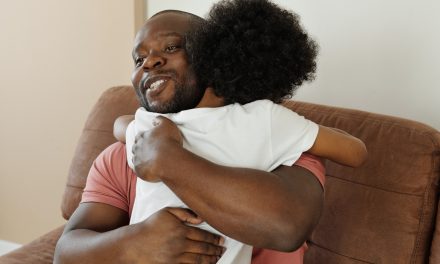“For black students experiencing a lack of consent is part of a cultural heritage. Slavery was the biggest non-consensual migration in human history. Colonisation is non-consensual governance. Policing by consent doesn’t seem to apply to young black people”
Talking about consent is weird. I can say that confidently; I’ve been doing it for more or less the past eight years, working with a handful of organisations who deliver conversations about consent in universities, schools and workplaces. And talking about consent with teenagers? Awkward and weird.
When I say consent, most people think immediately about sex. And, sure, that comes into it; I’ve spent the past few years working with young people on issues surrounding sexual violence, gender stereotypes and domestic abuse. Sex is definitely part of the picture. But because it’s such a touchy subject, it’s a lot easier to begin by talking about the way consent plays into our more everyday lives, especially when talking to young people. Lots of consent educators use this technique for introducing the topic; we begin for example, by talking about how it feels to have to hug a relative when we don’t want to, and build up from there.
There’s a problem with beginning in this more relatable, productive place, and that’s the fact that not all students bring the same experiences of consent to the table.
For black students experiencing a lack of consent is part of a cultural heritage. Slavery was the biggest non-consensual migration in human history. Colonisation is non-consensual governance. Policing by consent doesn’t seem to apply to young black people in our cities. You can see this in the way young black people respond to consent education; with a mixture of passion, suspicion, enthusiasm and anger. I see a lot of young black people making the leap between the non-consensual relationships we are there to talk about and the non-consensual institutions they have to interact with.
When I walk into classrooms I’m most often with a white co-facilitator. In one session a young black man in Hackney asked about people in gangs pressuring young men into committing sexual assaults. My co-facilitator rushed to field the difficult and awkward question, answering, “if that happens you can always go to the police, and trust me, they’ll be able to sort that out, but it’s not what we’re here to talk about.”
I could actually feel our credibility evaporate. We never got the trust in the room back, and even though the session ticked all its boxes, we never really got a discussion going.
It’s never malicious, this kind of dismissal. Most of my colleagues have been white women who are keen to hone in on gender based violence, and tend to treat any race-based analysis as a digression. “We don’t have time for that,” they say. Others are a little more self aware, but don’t feel equipped to hold a conversation where race is relevant. Set up to fail by being sent into majority Black and Muslim spaces without an understanding of the lives of the young people they’re there to help.
Which begs the question, why? Why can’t we make these explicit connections between the way we teach black history and sex education? We know that the legacy of gender based violence is literally written in the DNA of Black British and American populations, and that the intersection of misogyny and racism affects Black women in specific ways. But we insist that these are separate issues, to be tackled by separate organisations and separate methods of teaching.
Part of it, I think, is that organisations which work on both race and gender based violence tend to get territorial. The pressure in the education sector seems to be ‘the best’ at one specific thing, which leads to some fantastically skilled people whose understanding is incredibly specialised, but who don’t have the time or networks to talk to other people doing other kinds of interesting work. And where that happens it’s the more marginalised students whose experiences tend to fall through the cracks.
Most of the white women I work with in consent training have a huge capacity for empathy and a great understanding of intersectionality. But the way charities work often doesn’t give them enough time with black colleagues to build the kind of relationships where we can genuinely give feedback that would help them. This goes both ways too; I know I probably have my own blindspots. As a man in the gender-based violence world, as a non-Muslim often working in Muslim communities, as a relatively light skinned person there are things which I just won’t get. But I’m not confident that any mistakes I make would be corrected in doing this work. There simply isn’t the time.
So what do we do about it? The temptation is to slap an implicit bias training over the problem, then call it a job well done, but the evidence shows that won’t work.
Instead, it would be a great start for charities who deliver consent and relationship education to recruit from the communities they’re serving. And I don’t just mean at the level of who is actually delivering these sessions, although that would go a long way to reducing episodes of racially insensitive cringe. Workshop plans should also be written by people who understand the issues that black and minority communities are facing.
There’s work here for parents too. With many schools now offering some form of consent based sex and relationships education, it’s worth parents beginning conversations with their kids about consent in general, way before getting caught up in the specifics of how it applies to romantic relationships.
We can rethink the way we approach consent education. That means getting interested in what young people have to teach us as much as what we have to teach them. It means working, well, consensually, towards something which feels comfortable for everyone.












